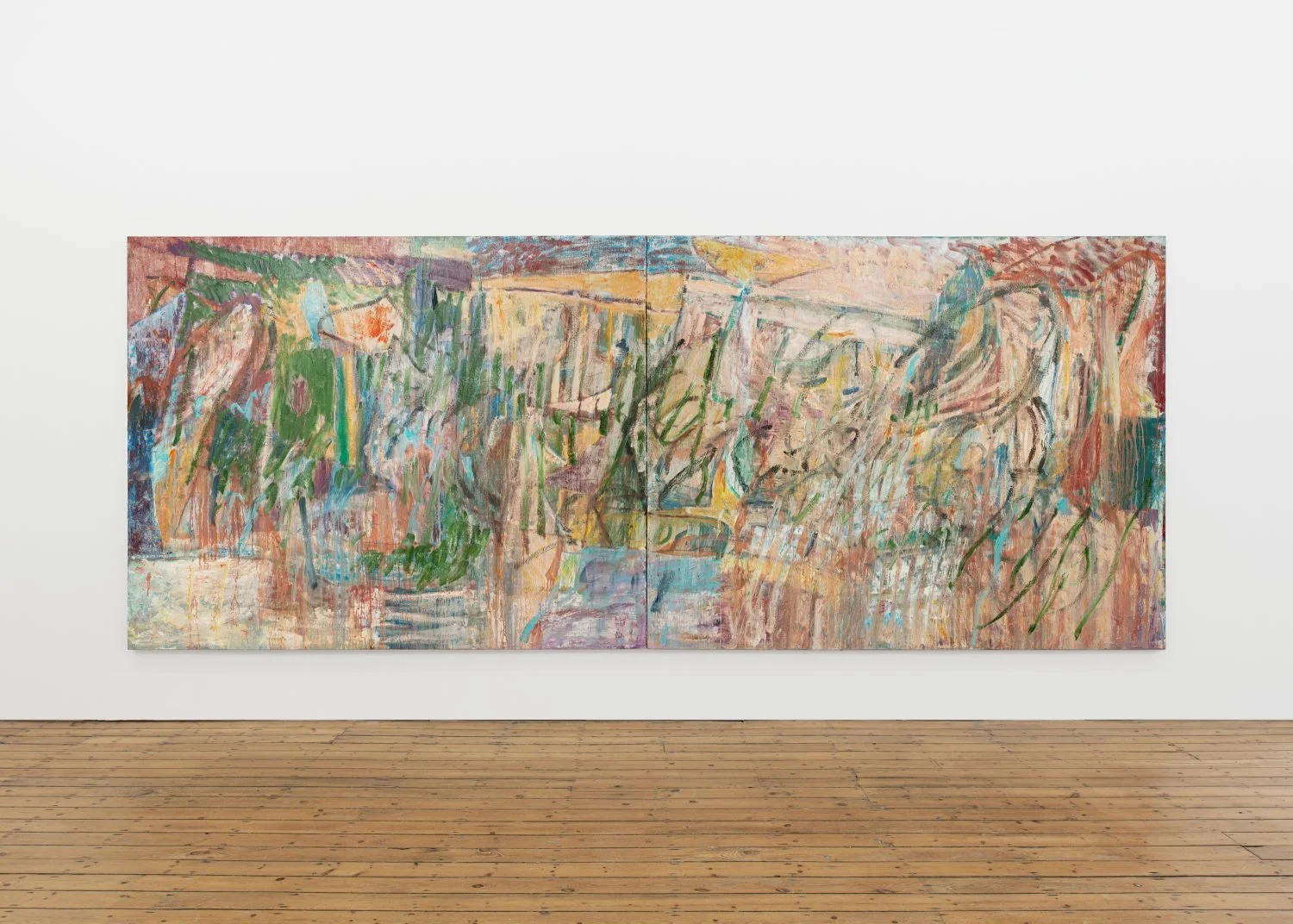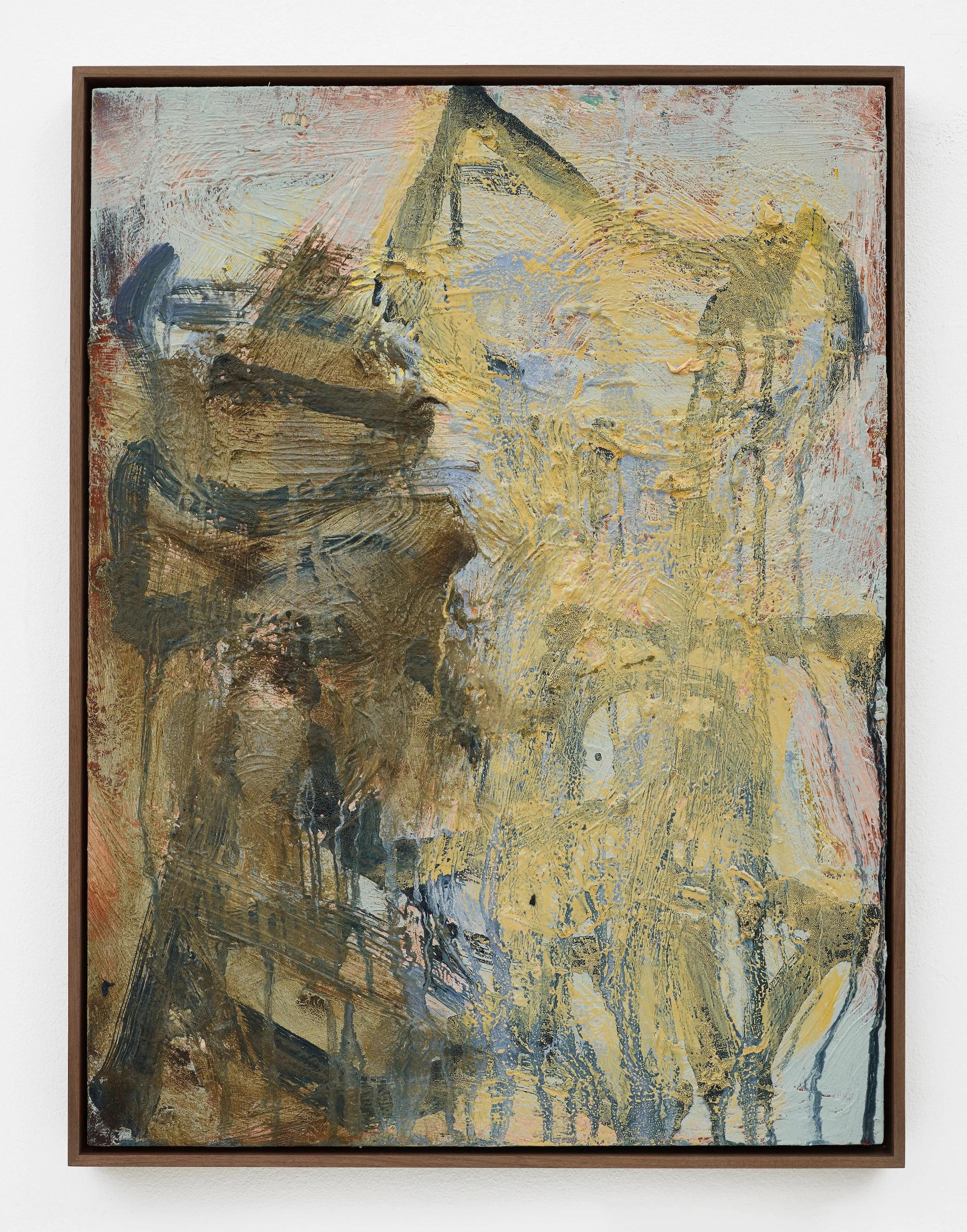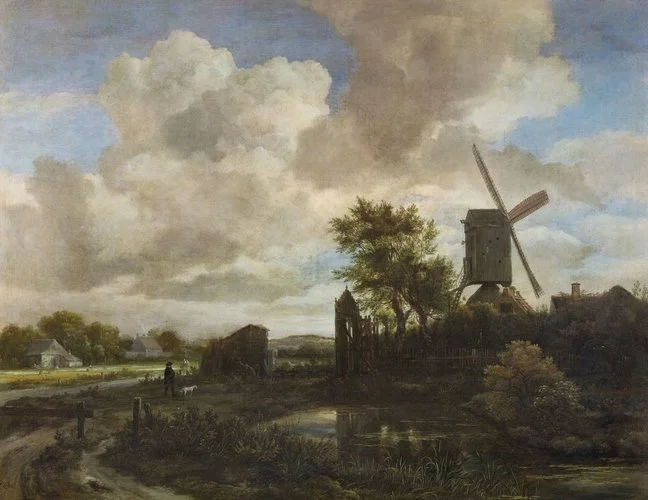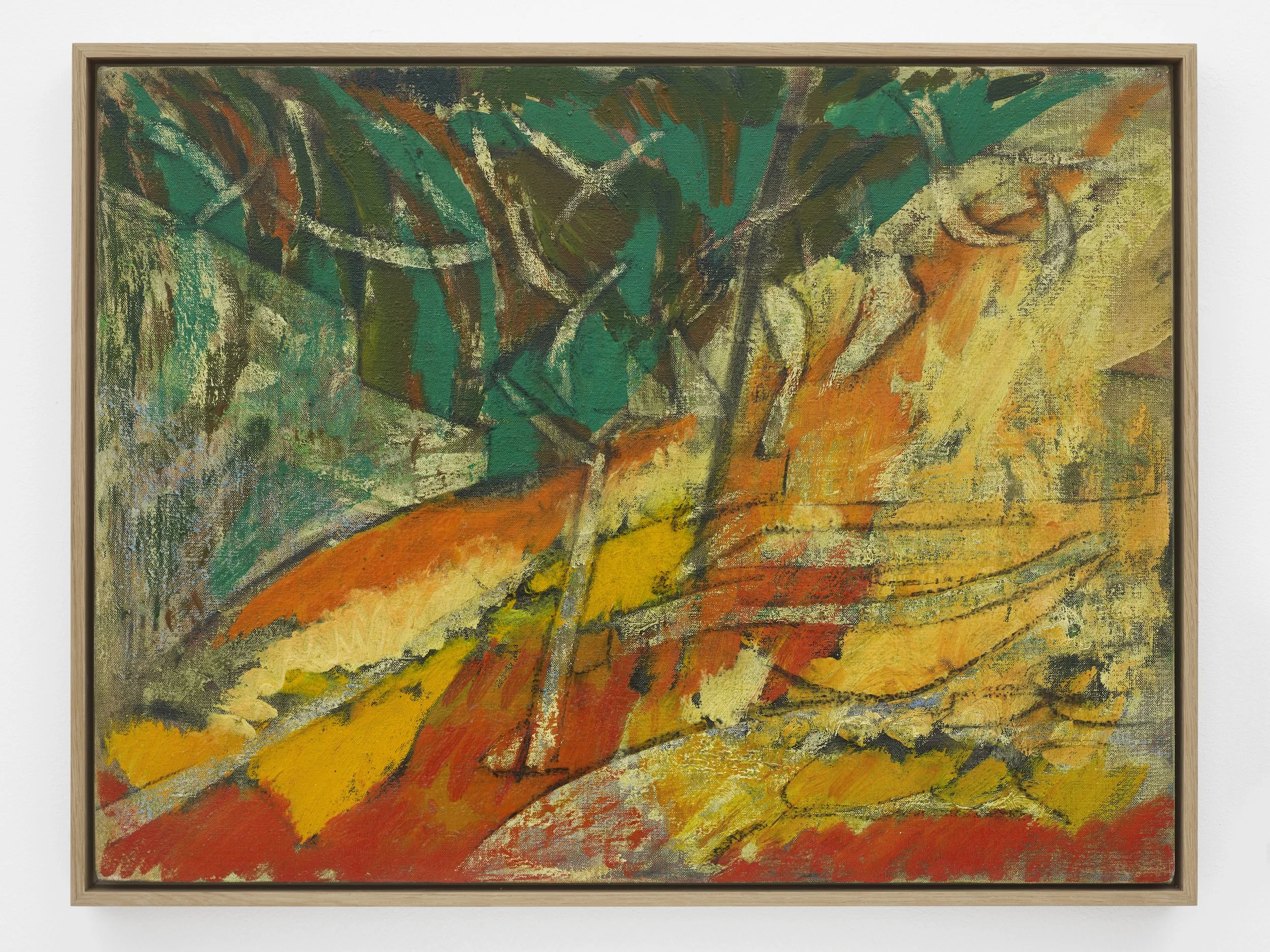INTERVIEWS
“I don’t think painting should fit in…”
TIM STONER in the studio with PAM EVELYN
PUBLISHED by VARDAXOGLOU
FRIDAY 22 APRIL 2022
In April 2022, Tim Stoner visited Pam Evelyn’s London studio to discuss religion, Brian Eno, the agrarian revolution, and how these things contribute to Pam Evelyn’s autonomous approach to painting.
Vardaxoglou publish an excerpt of their extended conversation, on the occasion of the exhibition Spirit Matter at Vardaxoglou, London, featuring both Stoner and Evelyn.
TS I want you to refer to a talk at your college [Royal College of Art] by Enrico David, he talked about death, the feeling in his work and abandonment. Can you talk to me about the relationship between your work and death, feeling and abandonment?
PE Yes, so in Enrico David’s talk he spoke about very early memories when he used to occupy abandoned buildings and similar experiences that exposed him to a very raw and unedited attitude of society. He mentioned things that were quite traumatising at times but he referred back to those experiences often and in his talk he spoke of the significance of those early years. This made me realise how everything I’m exposed to now will be significant in years to come and, more so in the studio, while I’m working, I realise that I’ll be looking back at these works and they’ll probably be the most significant paintings I make. You spend your life unpacking what was realised while young, those first works and understanding the urgency in materialising a voice in paint.
TS So what about the idea of abandonment? He talked about death, what’s your relationship to those things in your painting? Is there anything you can add because obviously he grew up a Catholic and so did you.
PE Well, I feel like his relationship to death comments more on the subject with his work, whereas I address and treat the subject in the making so there will be many deaths that the painting goes through. Instead of the totality of the painting as a whole being a comment on death, instead it’s this, lived through stain. While I go about this subject in a different way to Enrico David, I feel that how he talked about it was very significant because it made me realise how I go about dealing with these issues.
I think that a really great painting goes beyond its direct social climate and even timeline, you know, great painters almost are timeless and they touch with something which is beyond their audience - ‘my audience haven’t even been born yet’
PAM EVELYN
TS So, when you are standing in front of the painting are you thinking of enlivening it or killing it?
PE A dance between both reviving, rescuing and then also probably an act of demolishing and killing.
TS And when you’re in that process - we talked about Brian Eno in the ‘Oblique Strategies’ where you pick a random card out of a pack spontaneously and dislocate actions that can throw you off into a totally uncharted direction - so, in terms of the way that you think rather than just talking about Brian Eno, how do you interrupt and change and rewire your paintings while you’re doing them? What sort of tools in your mind are you using to reconfigure how you’re feeling the painting should go?
PE I mean to be honest I don’t even think I’m there yet with realising tools in order to disrupt because I already feel out of my depth naturally. It is something that I find almost unnatural, to make a painting, so I don’t even feel like I’m in a position stable enough to start interrupting. I find myself in the deep end already as soon as I pick up a tube of paint. There are things that I probably am conscious of that potentially throw me off and take the painting into a precarious place, but painting itself is already so disarming.
TS So for example with Brian Eno, if you think about Roxy Music and then if you think about the things he did with David Byrne, he was very good at coming up with new sounds. He was one of the people in music who did this thing of making sounds that were different to anything heard before and his argument about that is how he would trip himself up in order to find those new things, because what is known only makes you find what is already known. So how is it in a painting that you can find those unknown new sounds? What sort of process of tripping yourself up do you need? For example, do you ever paint with your other hand? Have you ever approached the paint and closed your eyes whilst you’ve painted? Because the thing is, there's a level of familiarity that you get after hundreds and thousands of hours of painting where it becomes second nature but that second nature can also be a hurdle and I think that's what Brian Eno is talking about.
PE I’ve just never felt like it does feel second nature really. In an MA you have to sort of tick these boxes and have evidence of experimentation, for example, using a colour that doesn’t appeal to you and that takes a painting a different direction and I have tried it, but I really think the thing that keeps me on my toes and keeps the painting progressing is a result of not feeling like the author but in many ways the outsider. It is that feeling of being overwhelmed and feeling like painting is something that I am inadequate to do.
TS So when you’re thinking about the process and the ‘strategy’ of - if I can use that word - it’s a very problematic word, just as ‘research’ can be a problematic word. When you’re in the zone, what’s going through your mind? What’s the place that you are in? Is your concern, for example, somebody like Tuymans, how to establish and propagate an image in the end to result in some sort of social resonance or is it more to do with the way you see yourself functioning internally and the painting acting as a window rather than any social political idea about painting?
PE I am fascinated by Tuymans and how he uses painting to be this incredibly broad comment on the social, historical and internal. Some of his paintings are emotional, whereas I actually position myself as a viewer prioritising nature and this is able to be politically charged. Some of the most political paintings are landscapes, while still acting as a direct comment on human nature.
TS I agree, because you’ve got Jacob van Ruisdael, who was one of the first painters to paint windmills in the Dutch landscape and of course the windmill is the icon of the agrarian revolution and how the world was changing into an industrial world. So those windmills aren't just bits of decor, they’re showing the implantation of humanity as a sort of scarring of the landscape, but I was thinking a little bit more like how you see the scheme of your paintings in large, as a sense that we’ve talked about your painting’s relationship to a kind of Mindscape, but having also talked about it in relation to the kind of universe that your paintings access… this kind of metaphor in a world where there’s a lot of painters making paintings that are very successful about political ideas, ideas of identity, ideas of, you know, how their work represents socio-political issues. Your work’s not doing that but it’s doing something else and I wondered if you felt that what you’re doing in fact, without me making it sound arrogant, is bigger than all of that? It’s about the human spirit which is sort of in a whole other world, isn’t it?
PE Yeah, wow, yeah. I think that a really great painting goes beyond its direct social climate and even timeline, you know, great painters almost are timeless and they touch with something which is beyond their audience - “my audience haven’t even been born yet”. I like the idea that, you know, painting isn’t a trap, as soon as you begin you’re taking through a timeline of humanity as well as reaching ahead and I when I’m in the studio I always kind of think, who is the future painter that could be looking at this and how can I be that comment or in that chain reaction that takes painting further.
TS So, you see yourself - and this was gonna be my final question - you see yourself fundamentally as someone in the line of a tradition, you’re not somebody that has a problem with that idea of the traditional? Me neither…
PE Painting as soon as you do it, you’re in that whether you like it or not, I agree. And at the end of the day whether or not I am someone who has any significance to that conversation, that’s not the point.
TS Ok let me finish the important bit of the last question, it’s: how does your work fit into the world?
PE I don’t think painting should fit in, look at Van Gogh, look at even someone like Munch, these people were complete outsiders. Good painting doesn’t come from something that would fit.





